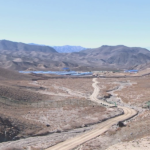In recent times, the value of the Afghani currency has significantly risen against the US dollar, marking a positive step towards economic stability and the preservation of national currency value. However, despite the Afghani’s increased value, market prices have not decreased accordingly, which has created financial challenges for the general public. This is a serious issue that calls for the government’s attention to control and monitor prices effectively.
The rise in the value of the Afghani should also reflect a decrease in prices, especially since many imported goods are priced based on the dollar exchange rate. For proper price control to be implemented, the government must collaborate with economic experts and trade unions to regulate the market and prevent artificial inflation. This artificial inflation has caused traders and sellers to maintain high prices, despite the Afghani’s increased value, putting additional economic pressure on people’s daily lives.
Price control and monitoring are the government’s responsibility, and the public demands focused attention in this area. Market regulation and oversight are essential measures that can improve the economic situation for citizens and help curb inflation. It is a fact that rising prices directly affect the lives of the general public, particularly those with low incomes. Therefore, the government must take serious and effective steps to control prices and improve living standards.
The government must particularly monitor those traders and companies that attempt to create artificial inflation by exploiting the needs of the public for personal gain. Such practices not only harm economic fairness but also erode public trust in the government and the economic system. If prices do not adjust in line with the Afghani’s rise, it will lead to a lack of confidence among the people and could result in the continuation of economic instability.
Price control is only achievable through serious oversight and sustained management by the government. If the government does not take a firm stance against traders and regulate the market appropriately, inflation will persist. Thus, the benefits of the Afghani’s increased value will only be felt by the public if prices are properly controlled.
The rise in the value of the Afghani is a positive development, but improvements in people’s lives should also be reflected in lower prices. The government must consult with importers and traders on pricing and develop a clear policy to ensure that the rise in the Afghani’s value brings a noticeable decrease in prices for the public. This is a sustainable solution that represents a significant step towards economic stability and improving the quality of life for the people.
In conclusion, the increase in the value of the Afghani must be accompanied by price control and the prevention of artificial inflation. Serious government oversight and attention to the economic conditions of the people will lead to improved living conditions and the establishment of economic justice. The government must act swiftly and decisively in this regard to ensure ease and stability in the daily lives of the public.













